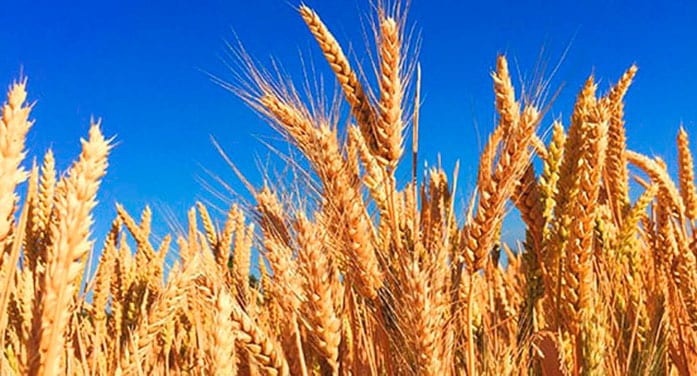University of Alberta research to develop earlier-maturing, more disease-resistant wheat for Western Canadian growers is being boosted, thanks to $2 million in support from the Canadian Wheat Research Coalition.
A five-year agreement between CWRC and the Faculty of Agricultural, Life & Environmental Sciences (ALES) supports the development of up to five new wheat varieties for use by farmers in Alberta and across the Prairies.
Through the U of A’s wheat-breeding program, the field-ready cultivars will be bred to resist five major wheat diseases, including stripe rust and Fusarium head blight, and to deliver improved grain yield, earlier maturity, strong straw and a high-quality end product, all of which are key priorities of northern Alberta’s Parkland region where the program is located.
“This funding provides tremendous solidification of our breeding capacity at the University of Alberta,” said Professor Dean Spaner, research lead on the project.
New wheat varieties take eight to 12 years to develop, highlighting the importance of the long-term funding being provided by the CWRC, a collaboration of the Alberta Wheat Commission, Saskatchewan Wheat Development Commission and the Manitoba Crop Alliance aimed at improving the profitability of wheat for Western Canadian producers.
“This commitment from wheat producers to support our research is a much-appreciated vote of confidence,” Spaner said.
“This agreement with the U of A is a natural fit as the CWRC recognizes the importance of having a strong breeding network across Western Canada,” said Fred Greig, CWRC chair. “Dr. Spaner and the U of A wheat-breeding program have a history of successfully developing and commercializing wheat varieties with strong agronomic packages for prairie farmers.”
The agreement, which runs to the end of 2025, also supports training graduate students in plant breeding who will work on lab- or field-based research to gain valuable hands-on experience. The program will also generate new research papers for the scientific community.
| RELATED CONTENT |
| Wheat makes the world go round By Pat Murphy |
| New strains of wheat sought with built-in resistance to wheat midge By Adrianna MacPherson |
| How gene editing helps farmers and consumers By Sylvain Charlebois |
The agreement grows the infrastructure and capacity of the U of A’s wheat-breeding program and plant research, said Stanford Blade, dean of ALES.
The U of A has the only hard red spring wheat breeding program in Alberta and is the only academic institution in the province that can grant graduate degrees in plant breeding.
“This important investment by the Canadian Wheat Research Coalition will further strengthen our wheat-breeding program,” said Blade. “The resources provided will support the release of improved cultivars and train the next generation of scientists by providing hands-on experience for graduate students. This support by the CWRC is an investment in the profitability and competitiveness of producers through a collaborative effort to create innovative, effective solutions.”
To date, the U of A’s plant-breeding program has registered and commercialized several disease-resistant wheat varieties; in 2020, more than 60,000 acres of spring wheat varieties developed by Spaner and his research team were harvested from Alberta farms.
Since 2001, the program has trained 16 masters of science students, 17 doctoral students, six post-doctoral fellows and three visiting scientists, and has published more than 140 scientific papers.
Past graduates from the program are now working as scientists, biologists, researchers and professors in Alberta, Western Canada and globally, contributing to the vital issue of food security and to strengthening agriculture, one of Canada’s most important economies, Spaner noted.
Wheat is the country’s biggest crop, with Canada sitting as the third-largest exporter in the world.
“Plant breeders have been at the forefront of feeding the world, and wheat production is an economic backbone for the Western Canadian and Alberta economies, which makes this continuing research vital.”
| By Bev Betkowski
Bev is a reporter with the University of Alberta’s Folio online magazine. The University of Alberta is a Troy Media Editorial Content Provider Partner.
The opinions expressed by our columnists and contributors are theirs alone and do not inherently or expressly reflect the views of our publication.
© Troy Media
Troy Media is an editorial content provider to media outlets and its own hosted community news outlets across Canada.



